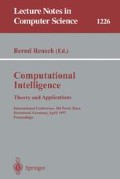Abstract
The fuzzy logic controller based on the fuzzy set theory provides a useful tool for converting the linguistic control rules from the expert knowledge into automatic control rules [1]. By using fuzzy automatic rules from the heuristic or mathematical strategies, complex processes can be controlled effectively in many situations. But the most important and difficult point is how to obtain the proper control rules for a given system. In addition to that Artificial Neural Networks (ANN) is successfully used in many areas such as fault detection, control and signal processing in our daily technology. Artificial Neural Networks have nonlinear structure and this is an effective feature that it approaches to the results of learning phase. Then, it gives results in test phase in short time (the degree about 10−3 second). It is a very preferable according to the other approaching methods.
In this study, generalized fuzzy logic controller was resembled by writing its software in Q — basic programming language. Active and reactive power control of a generator connected to infinite bus system was fulfilled effectively by the fuzzy logic controller which is supported by artificial neural networks. As well as this, the software of the system's simulation results were given.
Preview
Unable to display preview. Download preview PDF.
References
Procky and E.H. Mamdani, A linguistic self-organising process controller, Automatica, Vol. 15, No.1 1979, pp. 15–30
Nagrathy, I., J., Kathari, D. P., Modern Power System Analysis, Mc Grawn Hill, New Delhi, 1982.
Sarioğlu, K., Foundation of Electrical Machines (Synchronous Machines) İ.T.Ü. Electric-Electronic Faculty, İstanbul, 1993
Neal J., B., Mark G. Lauby, Power System Stability and Control, Newyork 1993.
Carson, W., T., Balu, Neal J.,B., Power System Voltage Stability Mc Grawn Hill, Newyork, 1993.
Uçan, B., A SCADA/EMS Applications, 5th Electrical Engineering National Symposium, TURKEY, 1995
Karayannis, N.B. And Venetsanopoulas, A.N., “Fast Learning Algorithms for Neural Networks”, IEEE Trans. Cir. and Sys.-II Analog and Digital Systems Proc. Vol.39, no.7, Page 453–474, July 1992.
Karlik, B., “Mio Electric Control by Using Artificial Neural Networks for Multifunctional Prothesis”, Doctora Thesis, Page 36, 38 ve EK, Y.T.Ü. TURKEY, 1994.
Timothy J.R., Fuzzy Logic With Engineering Applications, U.S.A, 1995
Author information
Authors and Affiliations
Editor information
Rights and permissions
Copyright information
© 1997 Springer-Verlag Berlin Heidelberg
About this paper
Cite this paper
Tanriöven, M., Kocatepe, C., Uzunoğlu, M. (1997). Continuous control of a synchronous generator's active and reactive power connected to network by using fuzzy neural networks algorithms. In: Reusch, B. (eds) Computational Intelligence Theory and Applications. Fuzzy Days 1997. Lecture Notes in Computer Science, vol 1226. Springer, Berlin, Heidelberg. https://doi.org/10.1007/3-540-62868-1_131
Download citation
DOI: https://doi.org/10.1007/3-540-62868-1_131
Published:
Publisher Name: Springer, Berlin, Heidelberg
Print ISBN: 978-3-540-62868-2
Online ISBN: 978-3-540-69031-3
eBook Packages: Springer Book Archive

